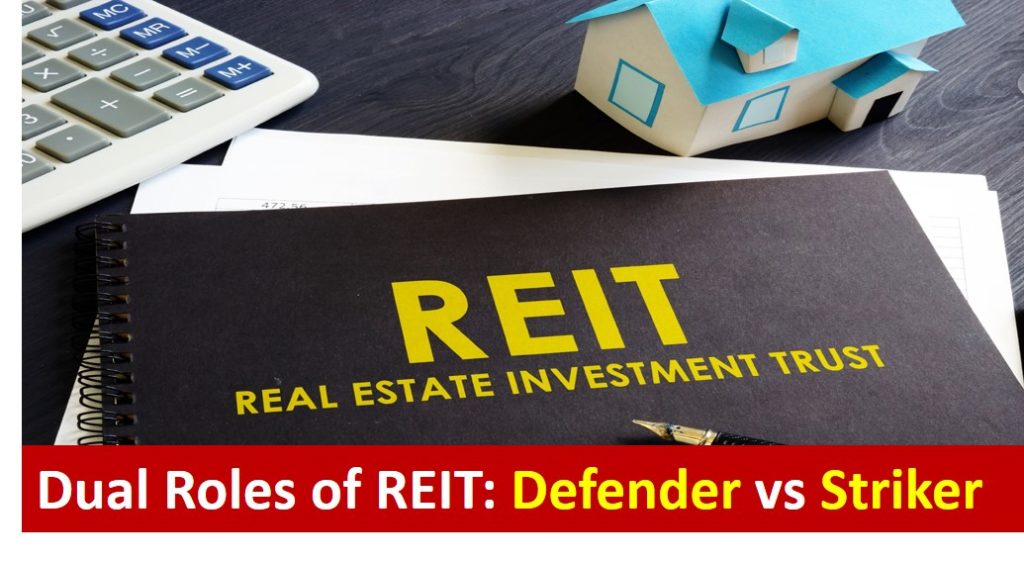
REIT investing is a popular investment choice to collect passive income through dividends. By law, 90% of net income from a REIT has to be redistributed back to shareholders in the form of dividend. A REIT could give dividend 4 times (4 quarters) a year, if an investor could gather a few strong REITs, it is possible to generate a stream of consistent quarterly or even monthly income. One could become financial free with REIT investing as the income (passive income of dividends and capital gain of stock prices) depends on the capital for investment which is scalable and dividend yield which could be maximized (depending on dividend / share price). Singapore REITs could give out more dividends due to tax exemption, therefore the average dividend yield is usually higher than overseas REITs.
Due to stock market uncertainty over the past few years, Singapore investors prefer to invest in defensive sector such as REITs or blue chip stocks (eg. 30 STI component stocks). As a result, REITs prices have gone up to higher optimism of 53%, resulting in lower dividend yield, narrower spread with nearly risk-free return such as Singapore Saving Bond. Most people consider REITs for longer term investing, aiming for 5-10% dividend yield yearly. However, over the past 1 year, some REITs are behaving as striker with over 20% return in only 6 months of trading.
As investor or trader has 2 options when considering REIT investing:
1) Investing REIT for Long Term (Defender)
Successful REIT investing requires selection of REITs with strong fundamentals, eg. consistent uptrend quarterly dividend payment, supported by steady free cashflow generated from REITs portfolio. However, during global financial crisis, unlike property market which is more defensive in nature (dipping by only 25%), REIT has speculative element of stock market, therefore REIT price could even drop by 70%. It is crucial for long term REIT investing to align entry with a low optimism price during global financial crisis. However, during a very bearish stock market, most retail investors may not take actions due to great market fear (also fearful when others are fearful), therefore missing the opportunity of lifetime to buy low and hold for long term.
2) Trading REIT for Short Term (Striker)
Successful REIT trading requires selection of REITs with reasonable fundamental, supported by uptrend share prices in a bullish stock market (for long strategy). Short term trading mainly aims for capital gains in a few weeks or a few months, following either Buy Low Sell High, or Buy High Sell Higher strategies. When price trend is reversed, a REIT trader has to follow the exit strategy to sell the stock or even cut loss. It is risky for a REIT trader to enter for short term gain but reluctant to exit as a trader when price trend is reversed, changing to a role of investor halfway, may end up Buy High Sell Low, losing in REIT trading. Although overseas REITs may not be suitable as defender for dividend income, some strong giant REITs are excellent choices as strikers for capital gains with rising prices.
Successful REIT investing requires understanding difference between investing and trading, aligning with own unique personality (Personal Analysis). REIT investing also need the knowledge of Fundamental Analysis of business, Technical Analysis of prices, Level Analysis and Optimism Analysis of global stock market.
Readers may learn from Dr Tee FREE 4hr stock investment course on how to invest and trade REITs, applying LOFTP (Level, Optimism, Fundamental, Technical, Personal Analysis) Strategies to select global REITs and blue chip giant stocks, knowing What to Buy, When to Buy and When to Sell.
Register Here: www.ein55.com

